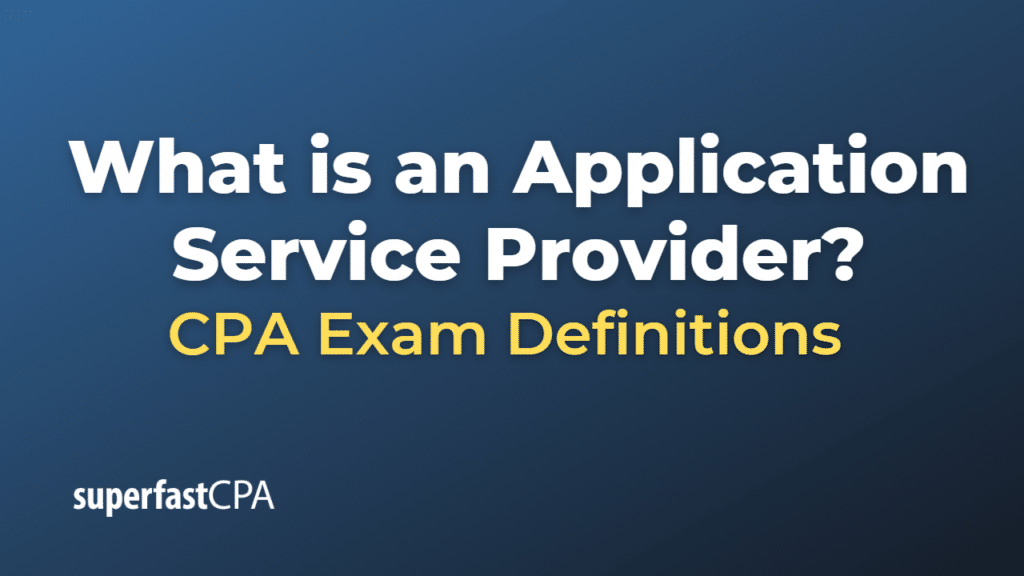Application Service Provider
An Application Service Provider (ASP) is a company that offers software applications and related services over the internet, usually on a subscription basis. Instead of purchasing, installing, and maintaining software applications on their own servers or computers, businesses can access these applications remotely through the ASP’s infrastructure. This allows clients to reduce their upfront investment in software licenses and hardware and minimize the need for in-house IT support.
ASPs provide various applications, including accounting software, customer relationship management (CRM) tools, enterprise resource planning (ERP) systems, and human resources management systems. They handle software updates, maintenance, and technical support, allowing businesses to focus on their core operations.
Some advantages of using an ASP include:
- Cost savings: Businesses can avoid high upfront costs associated with purchasing software licenses and hardware, as well as ongoing costs related to software maintenance and support.
- Scalability: ASPs can easily scale their services to accommodate a client’s changing needs, making it easier for businesses to grow or downsize without significant changes to their IT infrastructure.
- Accessibility: Since applications are hosted remotely, users can access them from anywhere with an internet connection, facilitating remote work and collaboration.
- Up-to-date software: ASPs typically provide regular updates and improvements to their applications, ensuring that clients always have access to the latest features and functionality.
However, there are also some potential drawbacks to using an ASP, such as dependence on a reliable internet connection, potential security risks, and possible limitations in customization and integration with other systems.
Example of an Application Service Provider
An example of an Application Service Provider (ASP) in the accounting domain is QuickBooks Online, a popular cloud-based accounting software offered by Intuit.
QuickBooks Online provides small to medium-sized businesses with a range of accounting tools, including invoicing, expense tracking, inventory management, payroll processing, and financial reporting. The software is hosted on Intuit’s servers, and users can access it from any device with an internet connection, such as a computer, tablet, or smartphone.
By subscribing to QuickBooks Online, businesses can enjoy the benefits of using a cloud-based ASP, such as:
- Cost savings: Instead of purchasing software licenses and investing in hardware infrastructure, businesses can pay a monthly or annual subscription fee, which is typically more affordable, especially for smaller businesses.
- Scalability: As a business grows or its needs change, it can easily upgrade or downgrade its subscription plan to access more or fewer features, without having to invest in additional hardware or software.
- Accessibility: Business owners and employees can access the software and their financial data from anywhere with an internet connection, making it easier to manage their finances on the go or collaborate with team members remotely.
- Up-to-date software: Intuit regularly updates QuickBooks Online with new features and improvements, ensuring that users have access to the latest accounting tools and best practices.
However, businesses using QuickBooks Online should also be aware of potential drawbacks, such as reliance on a stable internet connection, potential security risks associated with storing sensitive financial data in the cloud, and potential limitations in customization and integration with other software systems.













